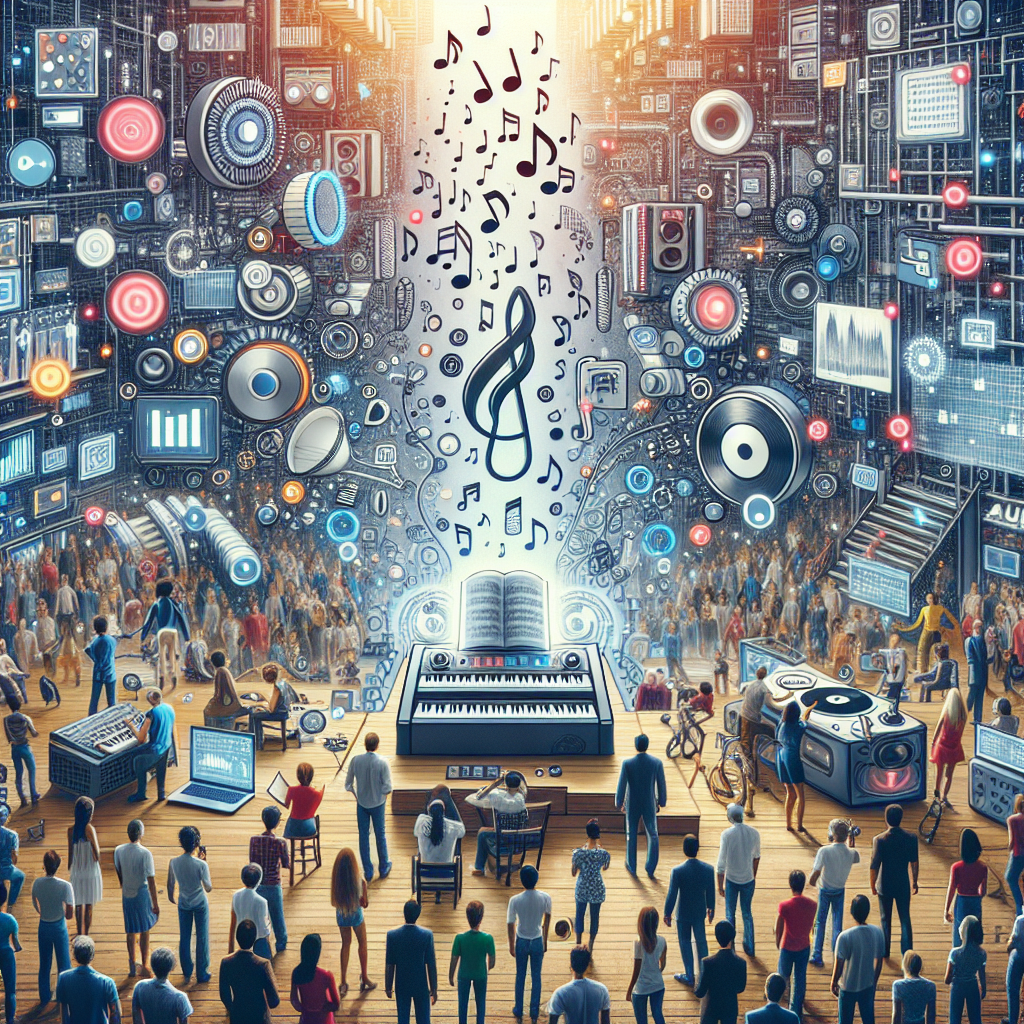The music industry has undergone significant changes over the past few decades, with the rise of digital technology and the internet fundamentally reshaping how music is created, distributed, and consumed. One area that has seen particular disruption is music publishing, the business of acquiring, administering, and exploiting musical compositions. In recent years, advancements in artificial intelligence (AI) have begun to revolutionize the music publishing industry, offering new opportunities for both creators and publishers.
AI technologies are being used in a variety of ways to enhance music publishing operations. One of the most significant applications of AI in music publishing is in the area of copyright management. AI algorithms can analyze vast amounts of data to identify and track musical compositions, ensuring that creators receive proper credit and compensation for their work. This is particularly important in an era where music is often shared and consumed across multiple platforms, making it difficult to accurately track and monetize usage.
AI is also being used to help music publishers identify new talent and predict which songs are likely to be successful. By analyzing streaming data, social media metrics, and other sources of information, AI algorithms can provide valuable insights into emerging trends and help publishers make informed decisions about which artists to sign and which songs to promote. This can help publishers reduce risk and increase the likelihood of success in an increasingly competitive marketplace.
Furthermore, AI is also being used to enhance the creative process itself. AI-powered tools can help composers and songwriters generate new ideas, experiment with different sounds and styles, and even collaborate with other musicians in virtual environments. These tools can help streamline the music production process, enabling creators to work more efficiently and effectively.
Overall, the future of music publishing is being reshaped by AI in a variety of ways. From copyright management to talent scouting to creative collaboration, AI is offering new opportunities for publishers to thrive in a rapidly changing industry. However, with these opportunities also come challenges, such as ensuring the ethical use of AI technologies and addressing concerns about data privacy and security.
Frequently Asked Questions:
1. How is AI being used in music publishing?
AI is being used in music publishing in a variety of ways, including copyright management, talent scouting, and creative collaboration. AI algorithms can analyze vast amounts of data to identify and track musical compositions, helping creators receive proper credit and compensation. AI can also help publishers identify new talent and predict which songs are likely to be successful, as well as enhance the creative process itself by providing tools for generating ideas and collaborating with other musicians.
2. What are the benefits of using AI in music publishing?
Using AI in music publishing can offer a number of benefits, including improved copyright management, more efficient talent scouting, and enhanced creative collaboration. AI algorithms can help publishers track and monetize musical compositions more effectively, reducing the risk of copyright infringement. AI can also help publishers identify new talent and predict which songs are likely to be successful, enabling them to make more informed decisions about signing artists and promoting songs. Additionally, AI-powered tools can help streamline the creative process, enabling composers and songwriters to work more efficiently and effectively.
3. What are some of the challenges of using AI in music publishing?
While AI offers many opportunities for the music publishing industry, it also presents several challenges. One of the main challenges is ensuring the ethical use of AI technologies, particularly in areas such as copyright management and data privacy. Publishers must be careful to use AI in a responsible and transparent manner, respecting the rights of creators and protecting the privacy of users. Additionally, there may be concerns about the impact of AI on jobs in the music industry, as automation could potentially replace some traditional roles. Publishers will need to adapt to these changes and ensure that they are using AI in a way that benefits both creators and consumers.
4. How can music publishers prepare for the future of AI in the industry?
To prepare for the future of AI in the music publishing industry, publishers should invest in AI technologies and expertise, as well as develop strategies for using AI in a responsible and ethical manner. Publishers should also stay informed about the latest developments in AI and how they are being used in the music industry, in order to stay ahead of the curve and take advantage of new opportunities. By embracing AI and adapting to the changes it brings, music publishers can position themselves for success in an increasingly digital and data-driven industry.
In conclusion, the future of music publishing is being reshaped by AI in a variety of ways, offering new opportunities for creators, publishers, and consumers alike. By embracing AI technologies and using them in a responsible and ethical manner, music publishers can stay ahead of the curve and thrive in a rapidly changing industry. AI is revolutionizing the music publishing industry, and those who adapt to these changes will be well-positioned for success in the years to come.

